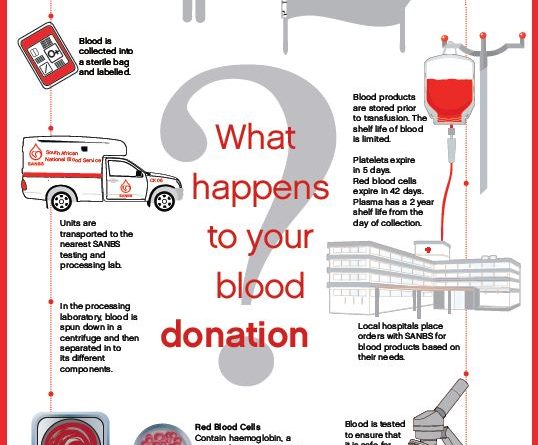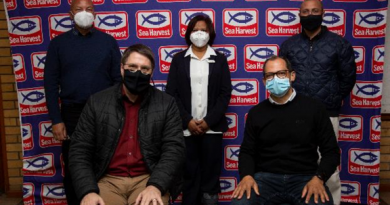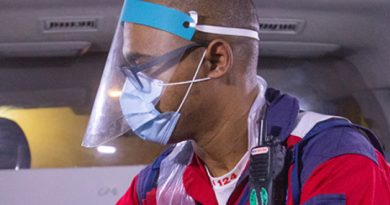Why should people donate blood?
The public is encouraged to donate blood to help save the lives of patients in need of blood transfusions. Every unit of blood is vital. Once tested and deemed safe for transfusion, it is separated into red blood cells, platelets and plasma. Therefore a unit of blood can save up to three people’s lives. The SANBS needs to provide over 1 million blood products to patients annually and without the generosity and commitment of our donors; it would be almost impossible.
Why do patients pay for blood transfusions?
The SANBS is tasked with collecting, transporting, testing and storing blood required for patients daily. For this reason, the SANBS charges a fee for the service and this is billed depending on the blood product that is required by the patient together with all other operating costs. It is important to note that the SANBS does not sell blood to patients but provides a service that ensures that all government and private hospitals meet their daily blood needs.
Being a not-for-profit business, ownership of SANBS assets are not vested in its members. In the event that SANBS should stop operating, its assets would have to be transferred to an organisation with similar goals and objectives.
Why is it important to be a regular donor?
Research has shown that SANBS requires more regular blood donors to consistently meet the country’s demand for this precious resource. Regular donors are encouraged to donate blood every 56 days or a minimum of three times a year.
Regular blood donors are the safest donors, because their blood is tested regularly and proven to be safe. They are also more familiar with the SANBS’s education processes.
What tests are done once blood is donated?
The SANBS adheres to international standards as well as taking the local prevalence of viruses into consideration. Every unit of blood is individually tested for Blood Group, HIV, Hepatitis B & C as well as Syphilis. In 2005 SANBS introduced a more sophisticated test called the Nucleic Acid Amplification Test (NAT) which has resulted in the quality of the blood we collect and supply to be amongst the safest in the world. There have been no reported cases of HIV transmission through a blood transfusion since the implementation of NAT.
Minimum requirements to be a donor:
- Be between the ages of 16 – 65 years
- Weigh more than 50 kg
- Be in good health
- Live a sexually safe lifestyle
- Consider your blood safe for transfusion to a patient.
People who meet the minimum requirements are encouraged to become regular blood donors.
How does a person find the nearest donor centre?
Contact 0800 11 9031 | www.sanbs.org.za | Facebook.com/SANBS | Twitter @theSANBS





